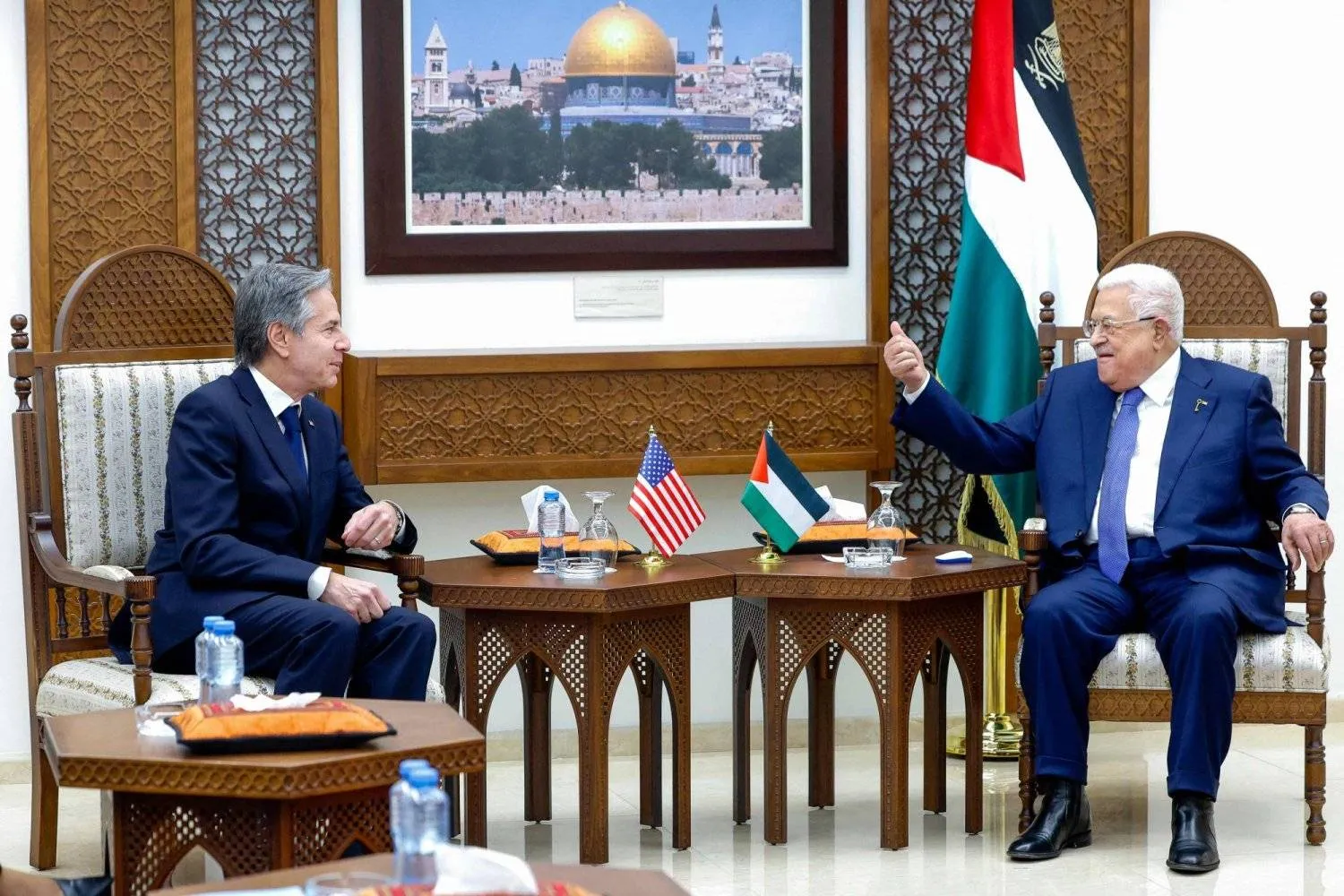US Secretary of State Antony Blinken had proposed to Palestinian President Mahmoud Abbas last week that the Palestinian Authority carry out a number of broad reforms at its agencies to allow them to perform their duties in the West Bank and post-war Gaza, American and Palestinian sources told Asharq Al-Awsat.
The proposals made during the “tense” meeting in Ramallah included the appointment of a deputy to Abbas and granting greater privileges to a government of technocrats.
The US is seeking a new structure of rule in the occupied West Bank and Gaza that would have expanded privileges in the security and financial sectors and foreign relations.
The two sources said it was unlikely that Abbas would yield to the growing pressure to appoint a deputy or abandon his own privileges in favor of a new prime minister.
The differences are likely to impede post-war efforts in Gaza.
Abbas responded to Blinken’s proposals by saying that there was a need for Washington to carry out its own reform in policy towards the Palestinians.
Washington must kick off an effective process to stop the Israeli war on Gaza and begin reconstruction, create an environment that is conducive to the reforms, stop Israeli raids in the West Bank and settler attacks on Palestinians, release PA funds seized by Israel and pave the way for the two-state solution, said the sources.
The PA’s measured approach in complying with reform demands poses a challenge to Washington, which ties its financial and political support to Ramallah to these actual reforms.
At the moment, it appears that Washington doesn't have a clear vision of what an alternative to the PA could be like, allowing Abbas greater room to maneuver.
Since the eruption of the war on October 7, Washington had come up with several scenarios over the party “qualified” in managing Gaza after the conflict.
It went through several options, such as proposing that Israel run post-war Gaza, the formation of a ruling council comprised of local clans, and that Arab countries play a role in running the enclave.
Ultimately, Washington came back to the PA, saying it should play a central role in running the West Bank and Gaza after the conflict is over on condition that it carry out “rapid” reforms to establish a “revitalized” authority that is capable of shouldering the responsibilities of the new phase.
The pressure Washington is applying on Abbas is reminiscent of the pressure former President George W. Bush’s administration applied on Yasser Arafat to abandon some of his privileges in favor a prime minister which eventually led him to being sidelined.









